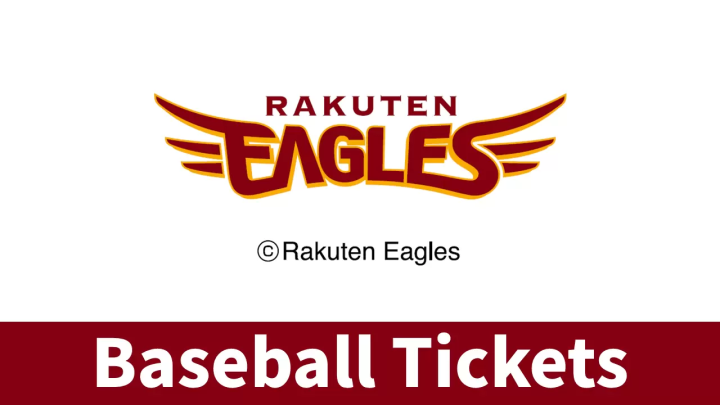How To Work Full-Time In Japan: Resumes, Interviews, And Office Manners

Working in Japan doesn't have to be a dream if your Japanese-language skills are above a certain level. This article discusses how to become a full-time employee, write a resume, what to wear for an interview, and basic workplace etiquette.
Working in Japan Is Not Just a Dream
Perhaps you've envisioned living and working in Japan after traveling to this country or watching Japanese dramas and anime.
Those who come to Japan on a student visa or working holiday visa, as well as other job-seekers wanting to secure full-time employment in Japan, should aim to pass the N3 level of the Japanese Language Proficiency Test (JLPT). The better your Japanese is, the easier it is to obtain a job: if you have a JLPT N2 or higher, it's even more likely to achieve your dream of establishing a career here.
This article introduces how to find full-time employment, write a resume, and what to wear for an interview. It also includes basic workplace etiquette in Japan.
How to Get a Full-Time Job in Japan

Back when a working holiday visa was not an option, those who came as exchange students to Japan began to work before graduating from university to continue living here.
Now, young adults from countries with working holiday visas balance studying Japanese and working part-time job while trying to secure full-time employment ("seishain" in Japanese).
Even if you don't have a working holiday visa, some Japanese companies offer full-time employment opportunities to foreign job-seekers without this requirement. There is a wide range of job opportunities for foreign students who freshly graduated from Japanese universities, too.
However, if you hold a tourist visa, the purpose of your stay does not allow you to participate in job-hunting activities. It is not a good idea to seek employment while on a tourist visa in Japan.

For those with permission to work a part-time job in Japan who want to work fulltime, starting at a company and then turning your position into fulltime before your permit expires is another way of securing employment. You can apply for a working visa while creating a track record of your employment experience.
There are many fields and industries that are demanding international talent. Foreign language expertise is required for positions at hotels, travel agencies, trading companies, international sales, translation work, real estate agencies, and the tech industry.
Handwritten Resumes - the Japanese Rirekisho
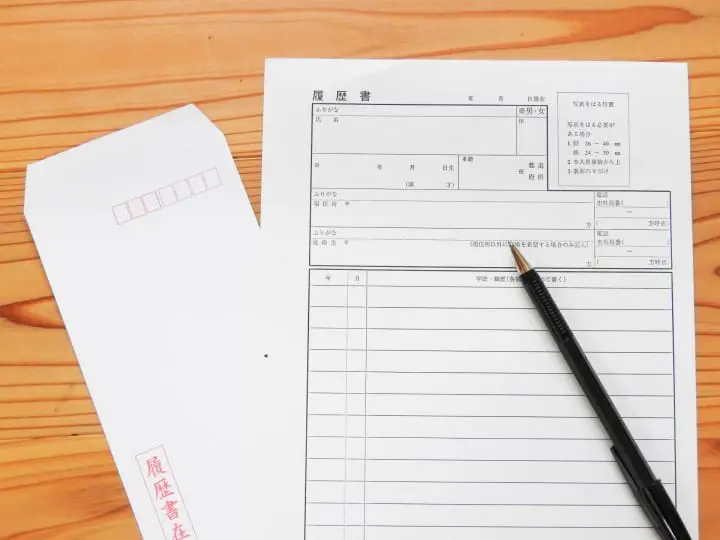
Often handwritten resumes, or "rirekisho" in Japanese, are a requirement when applying for a job at nearly all Japanese companies. You can buy blank resume forms at stationery stores, convenience stores, supermarkets, and 100-yen shops.
You have to fill out a rirekisho in Japanese. Using a black ballpoint pen, make sure the characters are easy to read and not too small. If you happen to make a mistake, don't use correction fluid or corrective tape. Avoid making errors by first drafting your resume with a pencil. If you must, try correcting handwritten mistakes discreetly.
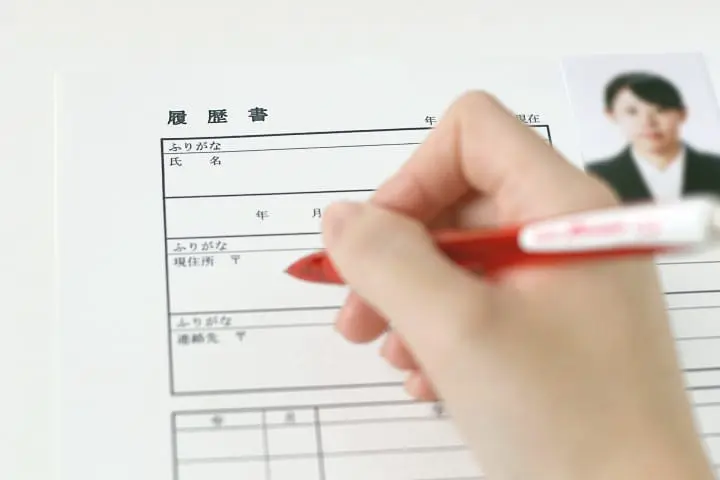
In Japan, you can easily find ID-photo booths on the streets, in train stations, and in supermarkets. When taking a resume photo, you should wear a white collared shirt underneath a black suit jacket or blazer.
What to Wear to a Job Interview in Japan
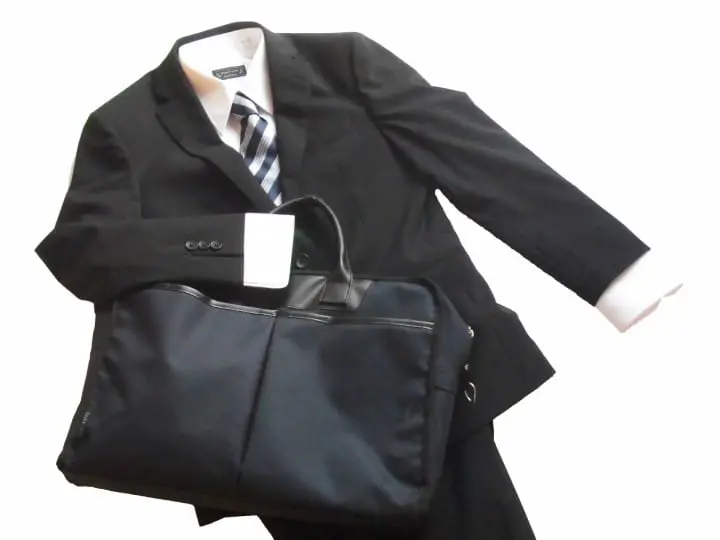
A plain black business suit is the safest and most common attire when job-hunting in Japan. Although this conservative ensemble is not necessarily required, it is a safe option, as you cannot be too casual.
When interviewing for a full-time job, men should wear a black suit, dark-colored tie, a white collared shirt, black shoes, and black socks. Briefcases and business bags should also be black or in other modest colors.
Women are advised to wear a black suit (skirt or pants), white collared shirt, black heels, and skin-tone or black stockings. If you need to carry anything with you, bring a bag in a muted color range.

Hair that is dyed in an unnatural color might leave a bad impression during a job interview in Japan. If possible, try to refrain from coloring your hair or tone it down with a more natural shade. While watches and wedding rings are acceptable, applicants should remove necklaces and earrings. Try to avoid wearing flashy accessories or clothing.
Men should keep their hair short and look clean-shaven. Women with longer than shoulder length hair should pull it back in a ponytail or bun. Applicants may also wear minimal makeup that complements their skin tone. For shoes, choose black mid-level pumps or black loafers to appear elegant and professional.
Basic Etiquette in the Japanese Workplace
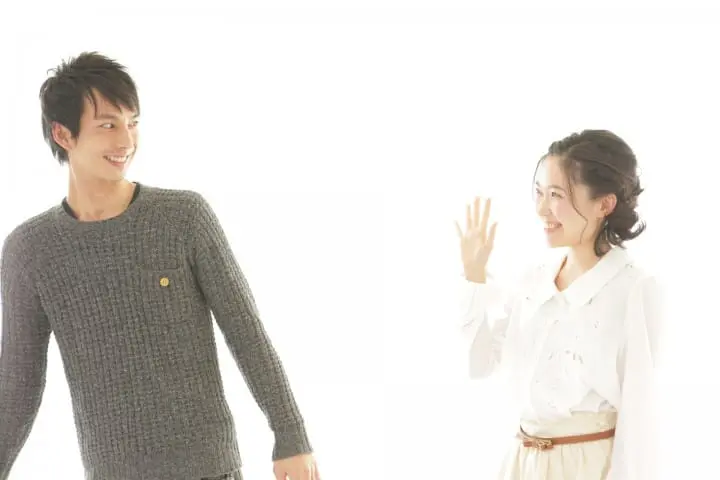
It is polite workplace etiquette to greet people throughout the day in Japan. Before noon, you should say "Ohayo gozaimasu (good morning)" to your colleagues and boss when you meet them, even in office bathrooms and hallways, and restaurants and shops near your workplace.
When you are ready to leave the workplace, it is custom to show support to your coworkers by saying, "Otsukaresama desu (Thank you for your hard work)." Another polite phrase to say when leaving is "Osaki ni shitsurei shimasu (Excuse me for leaving before you)."
If your colleagues clock out before you, say goodbye with "Otsukaresama deshita (Thank you for your hard work)."

Additionally, the phrases "Sumimasen (excuse me)" and "Arigato gozaimasu (thank you)" are used very often.
Job Hunting and Working in Japan
Whether you're looking for a temporary part-time job or a rewarding mid to long-term employment, there are plenty of work opportunities in Japan. If you have advanced Japanese language skills, why not first get an interview to gain essential work experiences and expertise here?












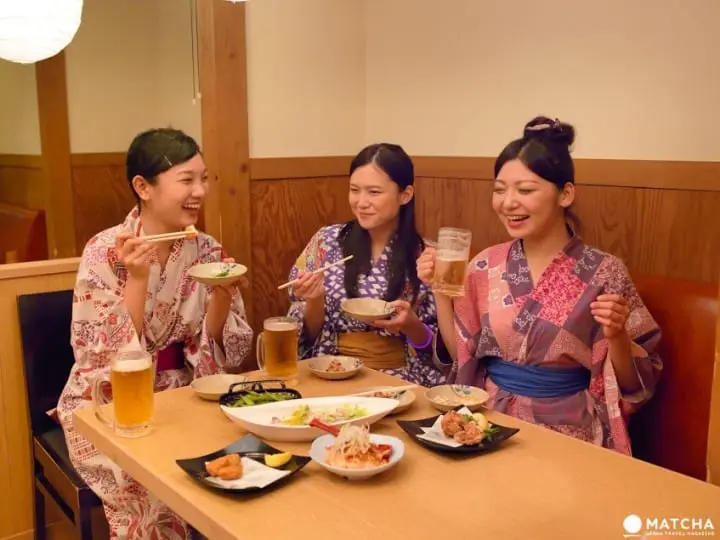
























![[Niigata] Skiing and snowboarding are just not enough! Fun snow spots for parents and children](https://resources.matcha-jp.com/resize/720x2000/2026/01/29-256901.webp)

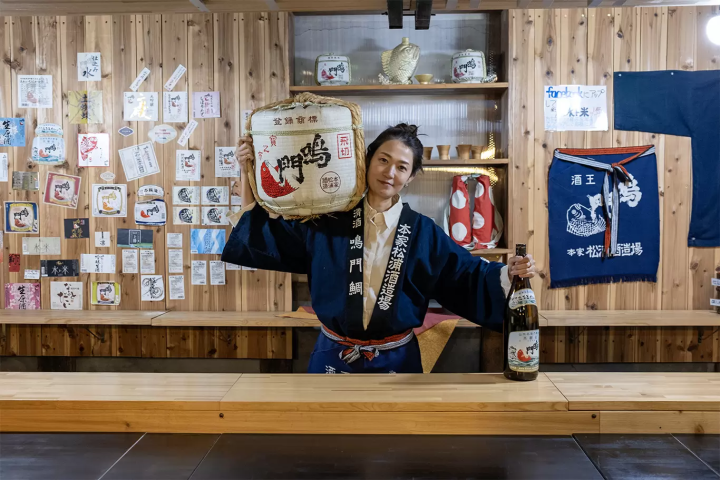
![[Gunma, Nakanojo] Experience Japanese history in a wooden school building from the Meiji era](https://resources.matcha-jp.com/resize/720x2000/2025/12/25-254022.webp)
